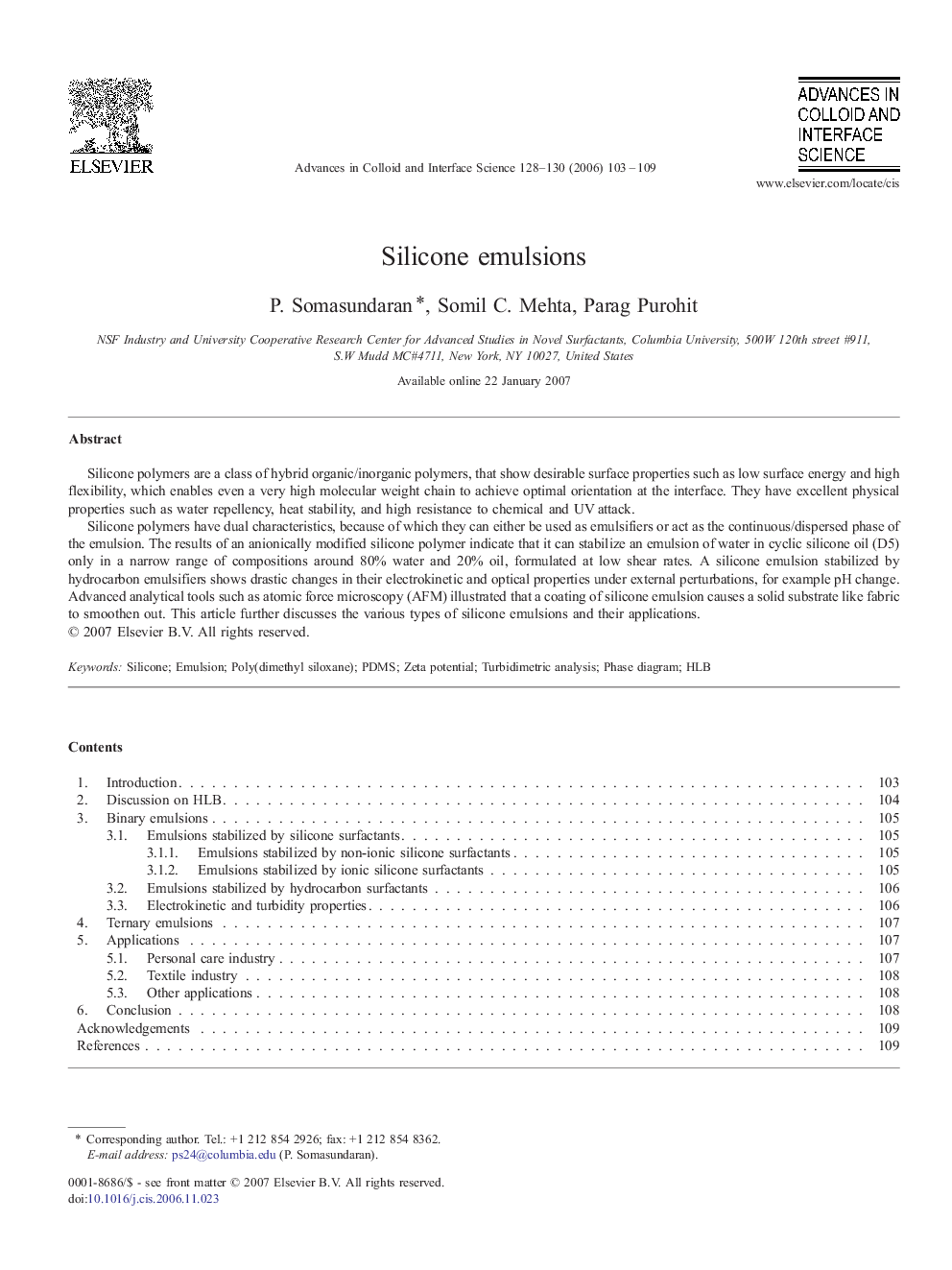| Article ID | Journal | Published Year | Pages | File Type |
|---|---|---|---|---|
| 591261 | Advances in Colloid and Interface Science | 2006 | 7 Pages |
Silicone polymers are a class of hybrid organic/inorganic polymers, that show desirable surface properties such as low surface energy and high flexibility, which enables even a very high molecular weight chain to achieve optimal orientation at the interface. They have excellent physical properties such as water repellency, heat stability, and high resistance to chemical and UV attack.Silicone polymers have dual characteristics, because of which they can either be used as emulsifiers or act as the continuous/dispersed phase of the emulsion. The results of an anionically modified silicone polymer indicate that it can stabilize an emulsion of water in cyclic silicone oil (D5) only in a narrow range of compositions around 80% water and 20% oil, formulated at low shear rates. A silicone emulsion stabilized by hydrocarbon emulsifiers shows drastic changes in their electrokinetic and optical properties under external perturbations, for example pH change. Advanced analytical tools such as atomic force microscopy (AFM) illustrated that a coating of silicone emulsion causes a solid substrate like fabric to smoothen out. This article further discusses the various types of silicone emulsions and their applications.
